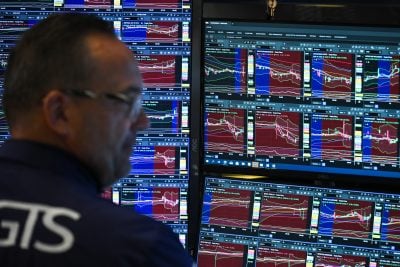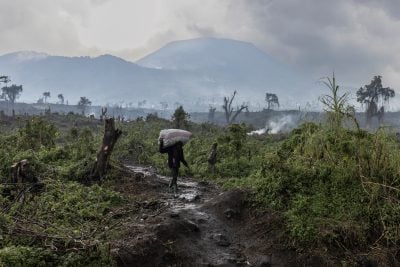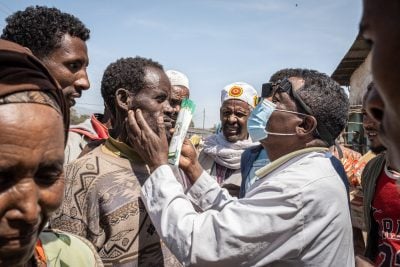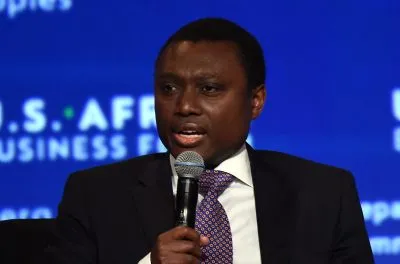The largest of the Big Three credit-rating agencies, S&P Global Ratings, says that the global food price shock could lead to potential credit ratings downgrades for the most vulnerable countries.
“The food shock could lead to rating actions, depending on the response by governments and international organizations,” says the report, The Global Food Shock Will Last Years, Not Months.
The report lays out the concerning implications of the food crisis – which will not end before 2024 according to the agency – on emerging economies, affecting GDP growth, fiscal performance, and social stability. Frank Gill, EMEA sovereign specialist at S&P Global Ratings, told African Business that this could ultimately impact credit ratings.
“The second-round effect of the global food shock on governments’ public finances could affect credit ratings,” says Gill.
“Since the onset of the war between Russia and Ukraine and all of its inflationary consequences, we have not lowered any African ratings… We are just flagging it as a risk because the war fallout drags on governments’ public finances through weaker growth, lower tax collection, and upward pressure on spending.”
African countries among the vulnerable
S&P has established a list of countries which will particularly suffer from rising food prices and diminishing supplies as a result of the conflict in Ukraine. Six African countries are among the 21 most vulnerable economies to the current food shock, the report says.
Morocco and Mozambique are second and third respectively in S&P’s ranking as the two countries import a considerable amount of wheat and fertiliser from both Russia and Ukraine. Other African countries identified as vulnerable include Egypt, Senegal, Cape Verde and Botswana.
North African countries could experience a severe impact on their balance of payments as they import large amounts of wheat. Ukrainian and Russian wheat represents 25% and 11% of Moroccan wheat imports respectively.
The impact of rising food prices is also being felt by most households, which generally spend as much as 40% of their overall spending on food. On top of that, pressure on governments to increase subsidies on basic food items could further tighten their budgets, which are already affected by a significant decline in GDP growth rates.
The limited hope of a ceasefire anytime soon in Ukraine, the disruption to the harvests of key producers, the increasing cost of wheat production and the adoption of export restrictions by various policymakers around the world are the main reasons S&P expect the global food shock to last until at least 2024.
A short-term solution for Africa will be to negotiate the unblocking of crop exports directly with Russia and Ukraine. Last week, Senegal President Macky Sall met with Russian President Vladimir Putin and urged him to facilitate the export of food from the region. Russia is blockading Ukraine’s Black Sea ports, the loading point for much of the country’s exports.
Another significant measure that could provide support to the the most vulnerable countries is the re-lending of special drawing rights (SDRs), supplementary foreign exchange reserve assets defined and maintained by the IMF.
“There were some suggestions that the SDRs allocated to wealthier economies could be lent out to the countries hit hardest by the pandemic and the Ukraine crisis,” says Gill.
Credit ratings agencies under spotlight
Any decision to downgrade African countries is likely to prove controversial. In recent years, the Big Three have come under increasing scrutiny for how they rate African sovereigns.
In February, Ghana hit out at “leviathan” credit ratings agencies after Moody’s downgraded Ghana’s long-term foreign currency sovereign rating from B3 to Caa1.
The finance ministry alleged “inaccurate balance-of-payments statistics” and hit out at a process which it said was “based entirely on a desktop exercise (and) virtual discussions” without a visit to Ghana from Moody’s country analyst.
In the same month, President Macky Sall of Senegal used his inaugural speech as chair of the African Union to condemn the high rates of interest that African countries pay due to what he called “subjective” judgements on the part of the international ratings agencies.
This month, former Guinea finance minister Malado Kabo argued in African Business that African countries need their own credit rating agencies.
Want to continue reading? Subscribe today.
You've read all your free articles for this month! Subscribe now to enjoy full access to our content.
Digital Monthly
£8.00 / month
Receive full unlimited access to our articles, opinions, podcasts and more.
Digital Yearly
£70.00 / year
Our best value offer - save £26 and gain access to all of our digital content for an entire year!

 Sign in with Google
Sign in with Google 





